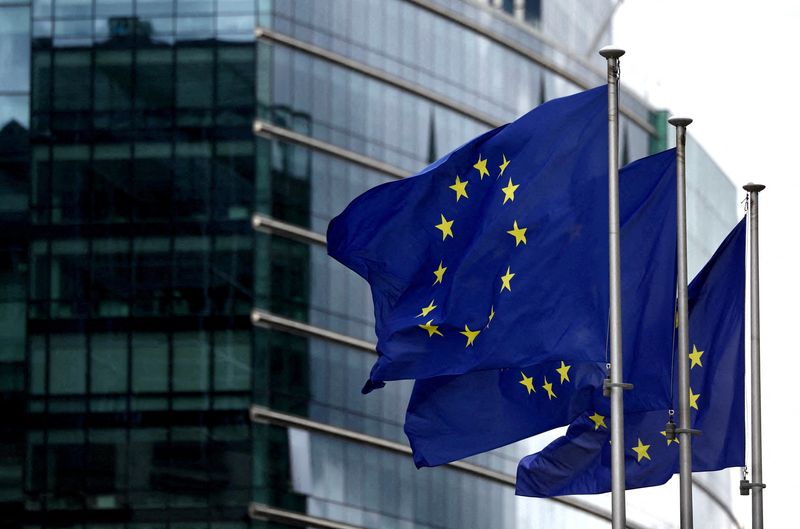By Jan Strupczewski
BRUSSELS (Reuters) - The next European Commission will face a discussion on how to replace the EU's unprecedented 800-billion-euro scheme of joint borrowing created to revive the economy after the pandemic, European Economic Commissioner Paolo Gentiloni said on Thursday.
The scheme, called Next Generation EU, is a mix of grants and loans for each of the EU's 27 countries, with the money raised, for the first time, through joint EU debt that financial markets have long been calling for.
Governments invest the money in the transition to a green economy, digitalisation and in economic resilience. The scheme, started in 2021, ends in 2026.
"It is very important to understand what comes next, after 2026. I don't think the need for common support for common goals and common projects will end in 2026," Gentiloni told a news conference.
"Of course I am not proposing to make NextGen EU a permanent tool, but saying that probably the next Commission will have to discuss what next, what else?" he said.
The current Commission, the EU's executive arm of which Gentiloni is part, will finish its five-year term in October and a new Commission, to which governments will appoint their representatives as commissioners, will take office.
Officials from EU institutions and several governments have expressed support for the idea of setting up an EU mechanism to jointly finance EU public goods like transport, energy, security and defence, as well becoming more competitive.
But doing so through more joint EU debt is firmly opposed by Germany, whose constitutional court ruled in December 2022 that joint EU debt for the pandemic could be allowed only as an exception and could not be used to finance political tasks.

Still, with the EU facing a multitude of challenges, from boosting defence spending, building joint energy infrastructure to securing supply chains, attracting investment and latest technologies, several EU leaders, including French President Emmanuel Macron, are openly talking about the need for more joint EU debt.
Also former Italian prime minister and ECB president Mario Draghi, who is preparing a report commissioned by the EU on how to boost the block's competitiveness, is in favour of more joint borrowing, a view that is likely to be reflected in the recommendations of the report due in June.